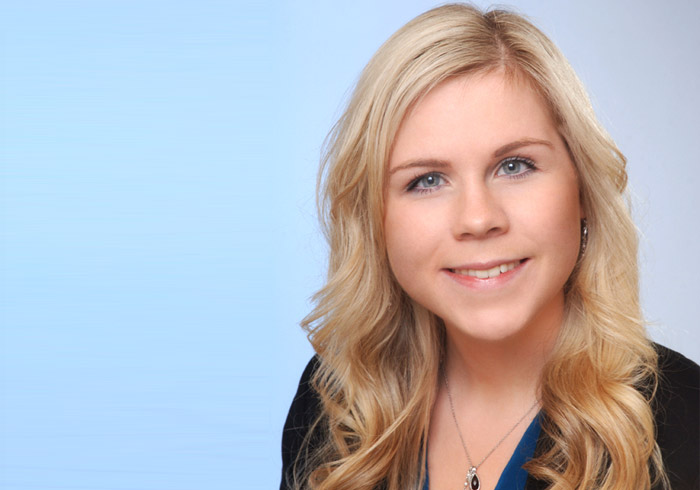Interview with Britta Daffner
You received your first university degree at the cooperative state university in Mannheim in the field of International Business IT. What were your main motives to further your academic education with a master degree?
I always knew that I would further my academic education with a master degree. By doing this I aimed to qualify myself even further, to look outside the box and of course to positively diversify my profile on the job market.
After your undergraduate studies at the cooperative state university you chose to do another part-time study program with „Master@IBM“. In your opinion, what is the decisive added value of a part-time degree program?
I was really convinced by my undergraduate studies at the cooperative state university, which was also in cooperation with IBM. I was always motivated by the synergy of theory and practice. I think that an early job experience within a company is very beneficial, since it leads to exploring a certain professional area, which might be interesting for oneself in the future. I also wouldn’t say that part-time studies are more stressful or elaborate than full-time studies. Nevertheless one has to be well organized to perform in the job as well as in the studies. On the other hand this is awarded with the financial support by the company.
What were your main reasons to decide for a master program at the KIT?
I already knew some alumni of the HECTOR School, who recommend the Technology Business School of the KIT. The master program Service Management and Engineering also seemed very appealing to me, since it combined management knowhow with state-of-the-art technology expertise. In the end I chose the KIT, since the study mode of the 2-week modules in Karlsruhe seemed to be most feasible and compatible with my work.
Looking back upon your studies at the HECTOR School, what have been the main elements or the most important content that will influence you in the long run?
In this day and age it is very easy to gain knowledge. In my studies at HECTOR School I learned how to apply this knowledge, how to validate the information for myself, as well as preprocess the data for others. Since the study phases were very intense we also built close friendships to other peers and gained lots of new contacts. Since our peers came from a wide variety of companies and branches, I also gained important insights into other companies and industries.
Your master thesis addresses artificial intelligence and how these developments will influence intelligent companies. In times of big data this is definitely a very important topic not only for companies like IBM. How would you summarize the results of your thesis in a few sentences and which added value do you see for IBM?
Artificial intelligence or cognitive computing offers new options for companies, since it is a new and user friendly way to work with a great number of heterogeneous data and complex analysis. Currently the market is still very dynamic with a large potential for growth, especially in Europe and North America. However, most companies are currently not able to implement a large holistic cognitive system. Often the right data basis is missing. The implementation of such a system is very expensive and takes a lot of time. Nevertheless companies need to start as soon as possible to invest in self-learning technologies. From this point they should start with small use cases or pilot projects, which are less time and cost intensive. Or they shoulds refer to already existing cognitive cloud services. It is important, that expertise within the company is established at an early stage.
After the completion of your master studies you were able to move on with a further career step within IBM. Congratulations! In what area are you currently working and has the master been a door opener?
Since November 2015 I am working as executive assistant of the GBS DACH leaders and IBM managing director Markus Koerner. The master was important, but not the decisive factor for receiving this offer. Nevertheless the experience and knowhow of the master program as well as the network support me in my daily work.
One final question: in your new role as alumni of the KIT and the HECTOR School, what would be helpful, so that the network with peers from all around the globe and different branches will remain?
I hope that KIT and HECTOR School continue to offer regular meetings and events at alternating locations with interesting (expert) topics, so that the network which we built up will continue and extend. Of course it will be difficult to gather all alumni, especially also the international ones. Maybe a lively online platform would be helpful. I also would appreciate some virtual seminars.
Thank you for your time!

The Master@IBM program enables participants to continue their academic education towards a master’s degree, while gaining professional experience and working part-time for IBM at the same time.
Learn more about Master@IBM
Rapidly evolving information technologies drive the digital transformation of products, services, and organizations. Successful enablers of digital transformation require a profound understanding and integration of business and information technology.
Be the next Enabler
Read through interviews & voices of our HECTOR School alumni on why HECTOR School is unique, and how it fostered their careers.
Find out more

